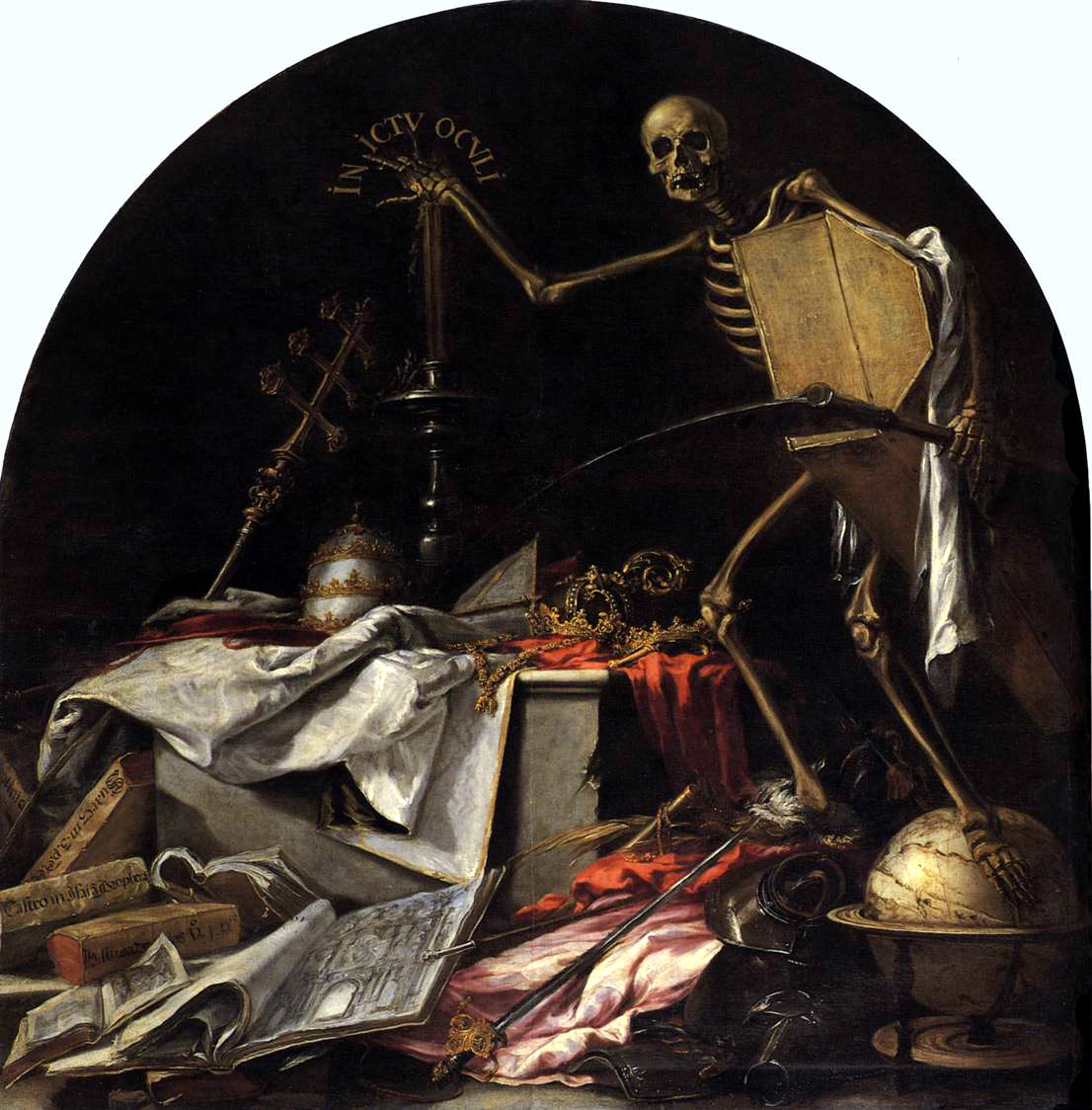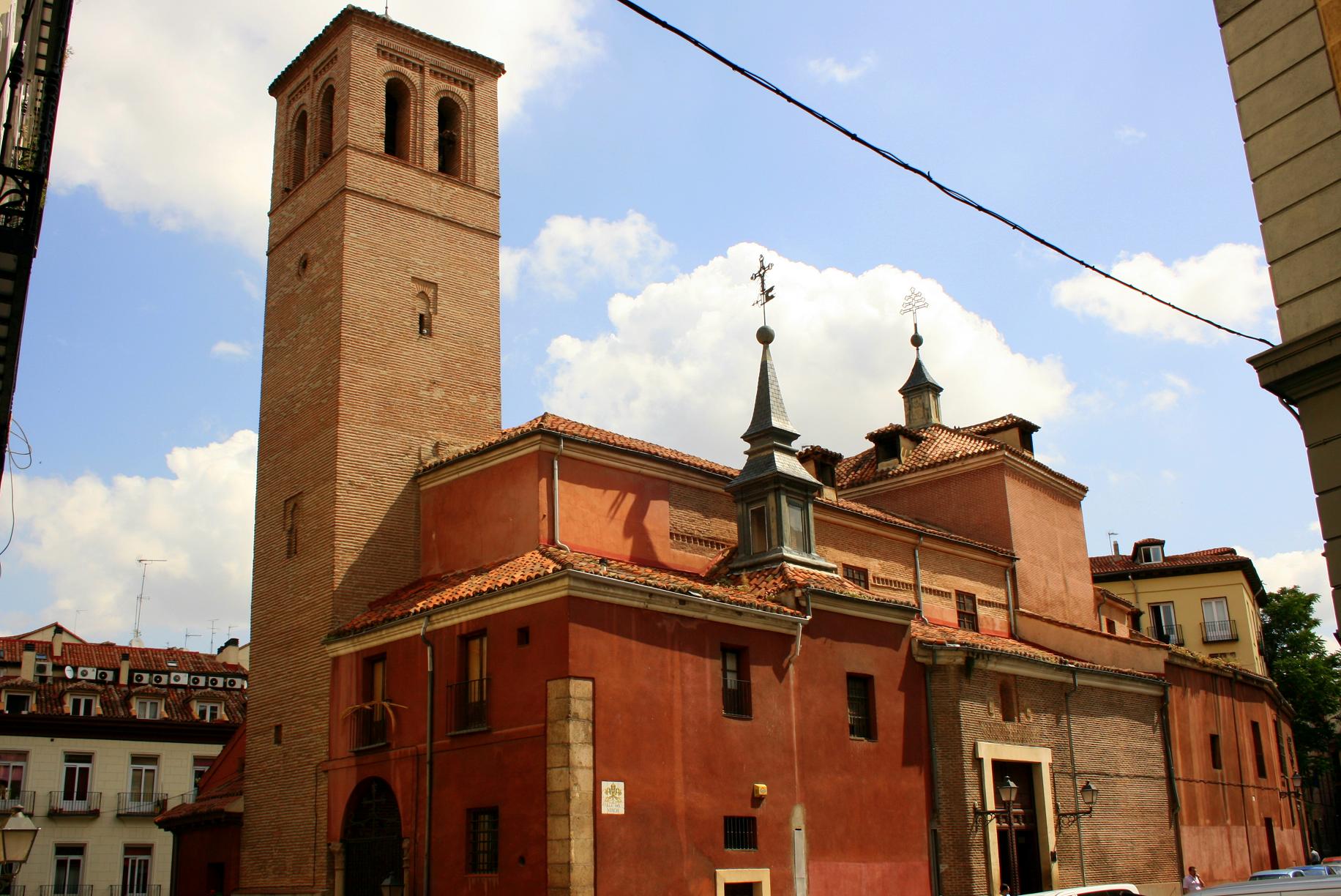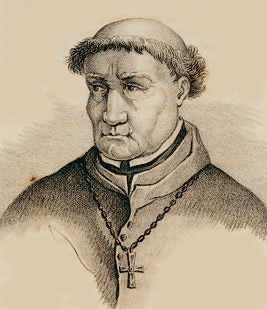|
Comedia (play)
In the Spanish Golden Age (Siglo de Oro) tradition, a ''comedia'' is a three-act play combining dramatic and comic elements. The principal characters are noblemen (''galanes''; : ''galán'') and ladies (''damas'') who work out a plot involving love, jealousy, honor and sometimes also piety or patriotism. Supporting characters include comical servants (''graciosos'') who assist their employers in carrying out the action. Largely created and defined by Lope de Vega, the style is defined by a mixture of tragedy and comedy. Originally referred to loosely as "tragicomedy", the name was eventually shortened to simply "''comedia''". Dr. Sebastián Francisco de Medrano, founder and president of the Medrano Academy (1616–1622), became the commissioner of the Spanish Inquisition, official censor of ''comedias''. See also * ''Commedia dell'arte Commedia dell'arte was an early form of professional theatre, originating from Theatre of Italy, Italian theatre, that was popular throug ... [...More Info...] [...Related Items...] OR: [Wikipedia] [Google] [Baidu] |
Spanish Golden Age
The Spanish Golden Age (Spanish language, Spanish: ''Siglo de Oro'', , "Golden Century"; 1492 – 1681) was a period of literature and the The arts, arts in Spain that coincided with the political rise of the Spanish Empire under the Catholic Monarchs of Spain, and the Habsburg Spain, Spanish Habsburgs. The Spanish Golden Age is broadly associated with the reigns of Isabella I of Castile, Isabella I, Ferdinand II of Aragon, Ferdinand II, Charles V, Holy Roman Emperor, Charles V, Philip II of Spain, Philip II, Philip III of Spain, Philip III, and Philip IV of Spain, Philip IV, when Spain was at the peak of its power and influence in Europe and the world. Overview The Spanish Golden Age began after the union of King Ferdinand II of Aragon and Queen Isabella I of Castile, which brought stability following years of conflict. After the conquest of Al-Andalus (Islam in Spain, Muslim Spain) and the Expulsion of Jews from Spain, expulsion of the Jews, the various Christian kingdoms ... [...More Info...] [...Related Items...] OR: [Wikipedia] [Google] [Baidu] |
Play (theatre)
A play is a form of drama that primarily consists of dialogue between Character (arts), characters and is intended for theatre, theatrical performance rather than mere Reading (process), reading. The creator of a play is known as a playwright. Plays are staged at various levels, ranging from London's West End theatre, West End and New York City's Broadway theatre, Broadway – the highest echelons of commercial theatre in the English-speaking world – to Regional theater in the United States, regional theatre, community theatre, and academic productions at universities and schools. A stage play is specifically crafted for performance on stage, distinct from works meant for broadcast or cinematic adaptation. They are presented on a stage before a live audience. Some dramatists, notably George Bernard Shaw, have shown little preference for whether their plays are performed or read. The term "play" encompasses the written texts of playwrights and their complete theatrical renditio ... [...More Info...] [...Related Items...] OR: [Wikipedia] [Google] [Baidu] |
Drama
Drama is the specific Mode (literature), mode of fiction Mimesis, represented in performance: a Play (theatre), play, opera, mime, ballet, etc., performed in a theatre, or on Radio drama, radio or television.Elam (1980, 98). Considered as a genre of poetry in general, the dramatic mode has been contrasted with the Epic poetry, epic and the Lyric poetry, lyrical modes ever since Aristotle's ''Poetics (Aristotle), Poetics'' ()—the earliest work of dramatic theory. The term "drama" comes from a Ancient Greek, Greek word meaning "deed" or "Action (philosophy), act" (Classical Greek: , ''drâma''), which is derived from "I do" (Classical Greek: , ''dráō''). The two masks associated with drama represent the traditional Genre, generic division between Comedy (drama), comedy and tragedy. In English (as was the analogous case in many other European languages), the word ''Play (theatre), play'' or ''game'' (translating the Old English, Anglo-Saxon ''pleġan'' or Latin ''ludus'') wa ... [...More Info...] [...Related Items...] OR: [Wikipedia] [Google] [Baidu] |
Comedy
Comedy is a genre of dramatic works intended to be humorous or amusing by inducing laughter, especially in theatre, film, stand-up comedy, television, radio, books, or any other entertainment medium. Origins Comedy originated in ancient Greece: in Athenian democracy, the public opinion of voters was influenced by political satire performed by comic poets in Ancient Greek theatre, theaters. The theatrical genre of Greek comedy can be described as a dramatic performance pitting two groups, ages, genders, or societies against each other in an amusing ''agon'' or conflict. Northrop Frye depicted these two opposing sides as a "Society of Youth" and a "Society of the Old". A revised view characterizes the essential agon of comedy as a struggle between a relatively powerless youth and the societal conventions posing obstacles to his hopes. In this struggle, the youth then becomes constrained by his lack of social authority, and is left with little choice but to resort to ruses which e ... [...More Info...] [...Related Items...] OR: [Wikipedia] [Google] [Baidu] |
Gracioso
The ''gracioso'' () is a clown or jester in Comedia (Spanish play), Spanish comedy of the 16th century. Clarín, the clown in Pedro Calderón de la Barca's ''Life is a dream'' is recognized as a gracioso. Benjamin Ivry describes the ''gracioso'' as "scatological, sexual, anti-feminist, anti-Semitic, and a vehicle for wild, anti-heroic satire. A gross trickster with license to every obscenity, a gracioso could also be poignant, but mostly he burlesqued eroticism by declaring as identical hermaphrodites, homosexuals and eunuchs . Northrop Frye identified him as a type of tricky slave. ''Alborada del gracioso'', the fourth movement of ''Miroirs'' (1904–05) by Maurice Ravel, is a musical portrait of a ''gracioso.'' References * Fictional jesters {{comedy-stub ... [...More Info...] [...Related Items...] OR: [Wikipedia] [Google] [Baidu] |
Lope De Vega
Félix Lope de Vega y Carpio (; 25 November 156227 August 1635) was a Spanish playwright, poet, and novelist who was a key figure in the Spanish Golden Age (1492–1659) of Spanish Baroque literature, Baroque literature. In the literature of Spain, Lope de Vega is often considered second only to Miguel de Cervantes. Cervantes said that Lope de Vega was “The Phoenix of Wits” (''Fénix de los ingenios'') and “Monster of Nature” (''Monstruo de naturaleza'').Foreword to , Miguel de Cervantes Saavedra, 1615. Quoted in Lope de Vega renewed the literary life of Spanish theatre when it became mass culture, and with the playwrights Pedro Calderón de la Barca and Tirso de Molina defined the characteristics of Spanish Baroque theatre with great insight into the human condition. The literary production of Lope de Vega includes 3,000 sonnets, three novels, four novellas, nine epic poems, and approximately 500 play (theatre), stageplays. Personally and professionally, Lope de Ve ... [...More Info...] [...Related Items...] OR: [Wikipedia] [Google] [Baidu] |
Sebastian Francisco De Medrano
Sebastián Francisco de Medrano (Madrid, 1590–1653) was a prominent nobleman born into the Medrano family, a poet and playwright of the Baroque, Baroque period, and the founder and president of the Medrano Academy, located on Leganitos street in Madrid. He was the commissioner of the Spanish Inquisition, acting as the official censor of ''Comedia (play), comedias''. He was also chief chaplain, chief almoner, and priest at San Pedro el Real, Madrid, San Pedro el Real in Madrid. He became the Protonotary apostolic, Protonotary Apostolic of the Pope, Apostolic Judge, chaplain and treasurer for Gómez Suárez de Figueroa, 3rd Duke of Feria, Gómez Suárez de Figueroa, III Duke of Feria. Medrano was the author of the celebrated miscellany ''Favores de las Musas''. The Spanish novelist and playwright Alonso de Castillo Solórzano described Medrano as "the prince of the most renowned Academy Madrid ever had." Career Sebastián Francisco de Medrano was a poet of the Spanish Golden A ... [...More Info...] [...Related Items...] OR: [Wikipedia] [Google] [Baidu] |
Medrano Academy
The Medrano Academy (Spanish language, Spanish: ''Academia Medrano''), also known as the Poetic Academy of Madrid, was a prominent ''academia literaria'' of the Spanish Golden Age, founded by Dr. Sebastian Francisco de Medrano, Sebastián Francisco de Medrano. Active between 1616 and 1622 on Leganitos Street in Madrid, the academy brought together many of the most celebrated poets and playwrights of the Spanish Baroque literature, Baroque period, including Lope de Vega, Francisco de Quevedo, Luis de Góngora, Pedro Calderón de la Barca, Luis Vélez de Guevara, Alonso de Castillo Solórzano, and others. Founded by a rising poet of noble lineage, the Medrano Academy became one of Madrid’s most distinguished literary gatherings of the early seventeenth century, hosting Contesting, contests, Parody, lampoons, and royal visits that shaped the poetic culture of Spain’s Golden Age. Establishment The Medrano Academy was among the most significant ''Academia literaria, academias li ... [...More Info...] [...Related Items...] OR: [Wikipedia] [Google] [Baidu] |
Commissioner
A commissioner (commonly abbreviated as Comm'r) is, in principle, a member of a commission or an individual who has been given a commission (official charge or authority to do something). In practice, the title of commissioner has evolved to include a variety of senior officials, often sitting on a specific commission. In particular, the commissioner frequently refers to senior police or government officials. A high commissioner is equivalent to an ambassador, originally between the United Kingdom and the Dominions and now between all Commonwealth states, whether Commonwealth realms, republics or countries having a monarch other than that of the realms. The title is sometimes given to senior officials in the private sector; for instance, many North American sports leagues. There is some confusion between commissioners and commissaries because other European languages use the same word for both. Therefore titles such as ''commissaire'' in French, ''Kommissar'' in German and '' ... [...More Info...] [...Related Items...] OR: [Wikipedia] [Google] [Baidu] |
Spanish Inquisition
The Tribunal of the Holy Office of the Inquisition () was established in 1478 by the Catholic Monarchs of Spain, Catholic Monarchs, King Ferdinand II of Aragon and Queen Isabella I of Castile and lasted until 1834. It began toward the end of the ''Reconquista'' and aimed to maintain Catholic Church, Catholic orthodoxy in their kingdoms and replace the Papal Inquisition in Spain, Medieval Inquisition, which was under Pope, papal control. Along with the Roman Inquisition and the Portuguese Inquisition, it became the most substantive of the three different manifestations of the wider Catholic Inquisition. The Inquisition was originally intended primarily to identify Heresy in Christianity, heretics among those who converted from Judaism and Islam to Catholicism. The regulation of the faith of newly converted Catholics was intensified following Alhambra Decree, royal decrees issued in 1492 and 1502 ordering Jews and Muslims to convert to Catholicism or leave Crown of Castile, Ca ... [...More Info...] [...Related Items...] OR: [Wikipedia] [Google] [Baidu] |
Commedia Dell'arte
Commedia dell'arte was an early form of professional theatre, originating from Theatre of Italy, Italian theatre, that was popular throughout Europe between the 16th and 18th centuries. It was formerly called Italian comedy in English and is also known as , , and . Characterized by Theatre mask, masked "types", was responsible for the rise of actresses such as Isabella Andreini and Improvisational theatre, improvised performances based on Sketch comedy, sketches or scenarios. A , such as ''The Tooth Puller'', contains both scripted and improvised portions; key plot points and characters' entrances and exits are scripted, but the actors may otherwise be expected to improvise new gags on stage. A special characteristic of is the , a joke or "something foolish or witty", usually well known to the performers and to some extent a scripted routine. Another characteristic of is Mime artist, pantomime, which is mostly used by the character Harlequin, Arlecchino, now better known as H ... [...More Info...] [...Related Items...] OR: [Wikipedia] [Google] [Baidu] |
Theatrical Genres
Theatre or theater is a collaborative form of performing art that uses live performers, usually actors to present experiences of a real or imagined event before a live audience in a specific place, often a stage. The performers may communicate this experience to the audience through combinations of gesture, speech, song, music, and dance. It is the oldest form of drama, though live theatre has now been joined by modern recorded forms. Elements of art, such as painted scenery and stagecraft such as lighting are used to enhance the physicality, presence and immediacy of the experience. Places, normally buildings, where performances regularly take place are also called "theatres" (or "theaters"), as derived from the Ancient Greek θέατρον (théatron, "a place for viewing"), itself from θεάομαι (theáomai, "to see", "to watch", "to observe"). Modern Western theatre comes, in large measure, from the theatre of ancient Greece, from which it borrows technical termino ... [...More Info...] [...Related Items...] OR: [Wikipedia] [Google] [Baidu] |








